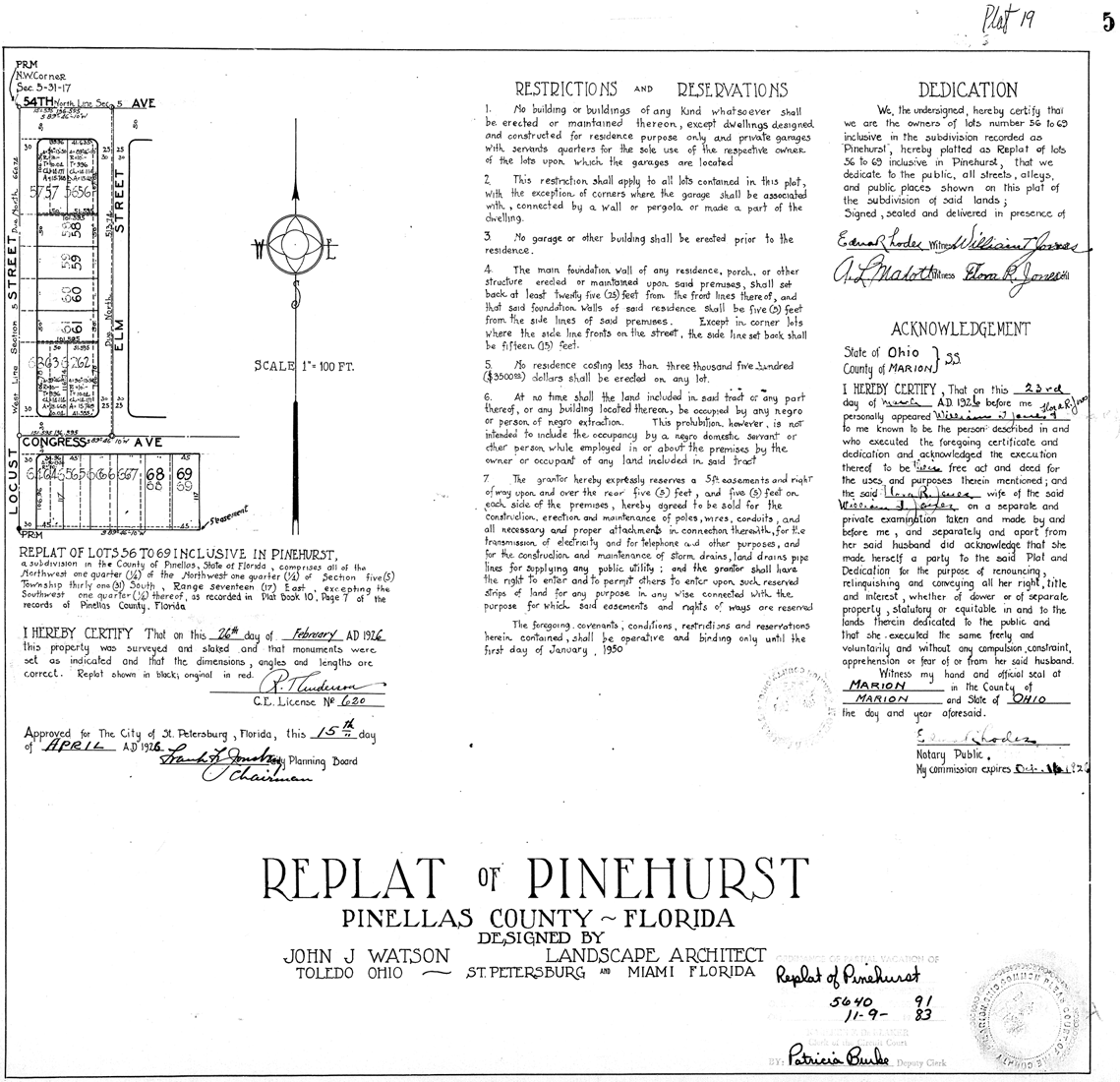|
Duke Of Westminster's Case
The ''Duke of Westminster's case'' was an often cited case in tax avoidance. The full title and citation was ''Inland Revenue Commissioners v. Duke of Westminster'' 936A.C. 1; 19 TC 490. The Duke of Westminster used to employ a gardener and pay him from his post-tax income, which was substantial. To reduce tax, the Duke stopped paying the gardener's wage and instead drew up a covenant, agreeing to pay an equivalent amount at the end of every specified period. Under the tax laws of the time, this allowed the Duke to claim the expense as a deduction, thus reducing his taxable income and his liability towards income tax An income tax is a tax imposed on individuals or entities (taxpayers) in respect of the income or profits earned by them (commonly called taxable income). Income tax generally is computed as the product of a tax rate times the taxable income. Tax ... and surtax. The Department of Inland Revenue challenged this arrangement as tantamounting to tax evasion and t ... [...More Info...] [...Related Items...] OR: [Wikipedia] [Google] [Baidu] |
Tax Avoidance
Tax avoidance is the legal usage of the tax regime in a single territory to one's own advantage to reduce the amount of tax that is payable by means that are within the law. A tax shelter is one type of tax avoidance, and tax havens are jurisdictions that facilitate reduced taxes. Tax avoidance should not be confused with tax evasion, which is illegal. Forms of tax avoidance that use legal tax laws in ways not necessarily intended by the government are often criticized in the court of public opinion and by journalists. Many corporations and businesses that take part in the practice experience a backlash from their active customers or online. Conversely, benefiting from tax laws in ways that were intended by governments is sometimes referred to as tax planning. The World Bank's World Development Report 2019 on the future of work supports increased government efforts to curb tax avoidance as part of a new social contract focused on human capital investments and expanded so ... [...More Info...] [...Related Items...] OR: [Wikipedia] [Google] [Baidu] |
Hugh Grosvenor, 2nd Duke Of Westminster
Hugh Richard Arthur Grosvenor, 2nd Duke of Westminster, (familiarly " Bendor"; 19 March 1879 – 19 July 1953) was a British landowner and one of the wealthiest men in the world. He was the son of Victor Grosvenor, Earl Grosvenor, son of the 1st Duke of Westminster, and Lady Sibell Lumley, the daughter of the 9th Earl of Scarborough. Nickname "Bend'Or" From his childhood and during his adult life he was known within family circles as "Bendor", which was also the name of the racehorse Bend Or owned by his grandfather the first Duke, which won The Derby in 1880, the year following his grandson's birth. The name is a jovial reference to the ancient lost armorials of the family: ''Azure, a bend or'', which were awarded to the Scrope family in the famous case of 1389 heard before the Court of Chivalry, known as '' Scrope v Grosvenor''. His wife Loelia wrote in her memoirs: "Of course everybody, even his parents and sisters, would normally have addressed the baby as " Belgra ... [...More Info...] [...Related Items...] OR: [Wikipedia] [Google] [Baidu] |
Covenant (law)
A covenant, in its most general sense and historical sense, is a solemn promise to engage in or refrain from a specified action. Under historical English common law, a covenant was distinguished from an ordinary contract by the presence of a seal. Because the presence of a seal indicated an unusual solemnity in the promises made in a covenant, the common law would enforce a covenant even in the absence of consideration. In United States contract law, an implied ''covenant'' of good faith is presumed. A covenant is an agreement like a contract. The covenantor makes a promise to a covenantee to perform an action ''(affirmative covenant'' in the United States or ''positive covenant'' in England and Wales) or to refrain from an action (negative covenant). In real property law, the term ''real covenants'' means that conditions are tied to the ownership or use of land. A "covenant running with the land", meeting tests of wording and circumstances laid down in precedent, imposes duti ... [...More Info...] [...Related Items...] OR: [Wikipedia] [Google] [Baidu] |
Taxable Income
Taxable income refers to the base upon which an income tax system imposes tax. In other words, the income over which the government imposed tax. Generally, it includes some or all items of income and is reduced by expenses and other deductions. The amounts included as income, expenses, and other deductions vary by country or system. Many systems provide that some types of income are not taxable (sometimes called non-assessable income) and some expenditures not deductible in computing taxable income. Some systems base tax on taxable income of the current period, and some on prior periods. Taxable income may refer to the income of any taxpayer, including individuals and corporations, as well as entities that themselves do not pay tax, such as partnerships, in which case it may be called “net profit”. Most systems require that all income realized (or derived) be included in taxable income. Some systems provide tax exemption for some types of income. Many systems impose tax ... [...More Info...] [...Related Items...] OR: [Wikipedia] [Google] [Baidu] |
Income Tax
An income tax is a tax imposed on individuals or entities (taxpayers) in respect of the income or profits earned by them (commonly called taxable income). Income tax generally is computed as the product of a tax rate times the taxable income. Taxation rates may vary by type or characteristics of the taxpayer and the type of income. The tax rate may increase as taxable income increases (referred to as graduated or progressive tax rates). The tax imposed on companies is usually known as corporate tax and is commonly levied at a flat rate. Individual income is often taxed at progressive rates where the tax rate applied to each additional unit of income increases (e.g., the first $10,000 of income taxed at 0%, the next $10,000 taxed at 1%, etc.). Most jurisdictions exempt local charitable organizations from tax. Income from investments may be taxed at different (generally lower) rates than other types of income. Credits of various sorts may be allowed that reduce tax. Some jurisdictio ... [...More Info...] [...Related Items...] OR: [Wikipedia] [Google] [Baidu] |
Surtax
A surtax is a tax levied upon another tax, also known as tax surcharge. Canada The provincial portion of the value-added tax on goods and services in two Canadian jurisdictions, Québec and Prince Edward Island, was formerly calculated as a surtax on the sticker price plus the federal Goods and Services Tax. On Prince Edward Island, provincial sales tax was assessed at 10% on top of the federal tax (as of 2013) of 5%, resulting in a total effective rate of 15.5% at the time of its repeal. Taxe de Vente de Québec was 9.5%, also assessed on top of the federal tax of 5%, resulting in a total tax burden of 14.975; it, too, was changed in 2013 so as no longer to be a surtax. United Kingdom In 1929, the supertax (which had been introduced in the Finance Act 1909 at the rate of 6 old pence in the pound (2.5%) on incomes over £5,000 per year) was renamed to surtax. By 1934, the rate was variable from 1 shilling to 7 shillings and sixpence in the pound (5% to 37.5%). It was repla ... [...More Info...] [...Related Items...] OR: [Wikipedia] [Google] [Baidu] |
Inland Revenue
The Inland Revenue was, until April 2005, a department of the British Government responsible for the collection of direct taxation, including income tax, national insurance contributions, capital gains tax, inheritance tax, corporation tax, petroleum revenue tax and stamp duty. More recently, the Inland Revenue also administered the Tax Credits schemes, whereby monies, such as Working Tax Credit (WTC) and Child Tax Credit (CTC), are paid by the Government into a recipient's bank account or as part of their wages. The Inland Revenue was also responsible for the payment of child benefit. The Inland Revenue was merged with HM Customs and Excise to form HM Revenue and Customs which came into existence on 18 April 2005. The former Inland Revenue thus became part of HM Revenue and Customs. The current name was promoted by the use of the expression "from Revenue and Customs" in a series of annual radio, and to a lesser extent, television public information broadcasts in t ... [...More Info...] [...Related Items...] OR: [Wikipedia] [Google] [Baidu] |
Tax Evasion
Tax evasion is an illegal attempt to defeat the imposition of taxes by individuals, corporations, trusts, and others. Tax evasion often entails the deliberate misrepresentation of the taxpayer's affairs to the tax authorities to reduce the taxpayer's tax liability, and it includes dishonest tax reporting, declaring less income, profits or gains than the amounts actually earned, overstating deductions, using bribes against authorities in countries with high corruption rates and hiding money in secret locations. Tax evasion is an activity commonly associated with the informal economy. One measure of the extent of tax evasion (the "tax gap") is the amount of unreported income, which is the difference between the amount of income that should be reported to the tax authorities and the actual amount reported. In contrast, tax avoidance is the legal use of tax laws to reduce one's tax burden. Both tax evasion and tax avoidance can be viewed as forms of tax noncompliance, as they de ... [...More Info...] [...Related Items...] OR: [Wikipedia] [Google] [Baidu] |
Thomas Tomlin, Baron Tomlin
Thomas James Chesshyre Tomlin, Baron Tomlin, PC (6 May 1867 – 13 August 1935) was a British barrister and judge. Early life and career Born in Canterbury, Kent, the son of a barrister, Tomlin was educated at Harrow School and New College, Oxford, where he obtained a first-class degree in Jurisprudence and second-class honours in the BCL. He was called to the bar by the Middle Temple (1891) and '' ad eundem'' by Lincoln's Inn (1892). He was the pupil, then the devil, of Robert Parker, until the latter was appointed to the High Court in 1906; Tomlin, whose practice had until then been a moderate one, inherited most of Parker's practice. He was Junior Equity Counsel to the Board of Inland Revenue, the Board of Trade, the Commissioners of Woods and Forests, the Charity Commissioners, and the Board of Education. He took silk in 1913 and was elected a bencher of Lincoln's Inn in 1928 Judicial career In 1923, Tomlin was appointed as a judge to the Chancery Division ... [...More Info...] [...Related Items...] OR: [Wikipedia] [Google] [Baidu] |
Ramsay Principle
"Ramsay principle" is the shorthand name given to the decision of the House of Lords in two important cases in the field of UK tax, reported in 1982: * ''Ramsay v. IRC'', the full name of which is ''W. T. Ramsay Ltd. v. Inland Revenue Commissioners, Eilbeck (Inspector of Taxes) v. Rawling'', and its citation is 982A.C. 300. * ''IRC v. Burmah Oil Co. Ltd.'', the full name of which is ''Inland Revenue Commissioners v. Burmah Oil Co. Ltd.'', and its citation is 982S.T.C. 30, H.L.(Sc.). In summary, companies that had made substantial capital gains had entered into complex and self-cancelling series of transactions that had generated artificial capital losses, for the purpose of avoiding capital gains tax. The House of Lords decided that where a transaction has pre-arranged artificial steps that serve no commercial purpose other than to save tax, the proper approach is to tax the effect of the transaction as a whole. The decision is not limited to capital gains tax, but applies ... [...More Info...] [...Related Items...] OR: [Wikipedia] [Google] [Baidu] |
Tax Avoidance
Tax avoidance is the legal usage of the tax regime in a single territory to one's own advantage to reduce the amount of tax that is payable by means that are within the law. A tax shelter is one type of tax avoidance, and tax havens are jurisdictions that facilitate reduced taxes. Tax avoidance should not be confused with tax evasion, which is illegal. Forms of tax avoidance that use legal tax laws in ways not necessarily intended by the government are often criticized in the court of public opinion and by journalists. Many corporations and businesses that take part in the practice experience a backlash from their active customers or online. Conversely, benefiting from tax laws in ways that were intended by governments is sometimes referred to as tax planning. The World Bank's World Development Report 2019 on the future of work supports increased government efforts to curb tax avoidance as part of a new social contract focused on human capital investments and expanded so ... [...More Info...] [...Related Items...] OR: [Wikipedia] [Google] [Baidu] |
Taxation In The United Kingdom
Taxation in the United Kingdom may involve payments to at least three different levels of government: central government (HM Revenue & Customs), devolved governments and local government. Central government revenues come primarily from income tax, National Insurance contributions, value added tax, corporation tax and fuel duty. Local government revenues come primarily from grants from central government funds, business rates in England, Council Tax and increasingly from fees and charges such as those for on-street parking. In the fiscal year 2014–15, total government revenue was forecast to be £648 billion, or 37.7 per cent of GDP, with net taxes and National Insurance contributions standing at £606 billion. History A uniform Land tax, originally was introduced in England during the late 17th century, formed the main source of government revenue throughout the 18th century and the early 19th century. Stephen Dowell, ''History of Taxation and Taxes in England'' (Rou ... [...More Info...] [...Related Items...] OR: [Wikipedia] [Google] [Baidu] |





.jpg)